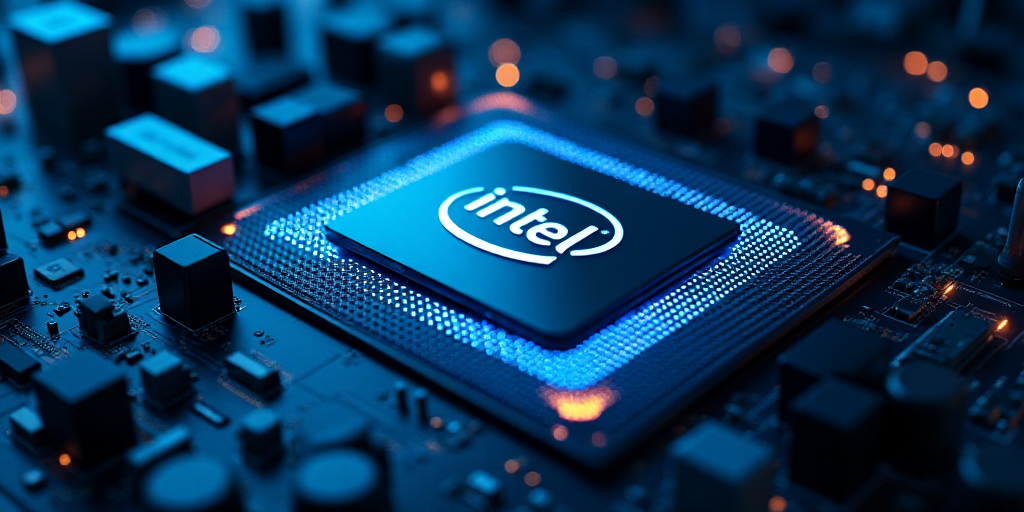Background on Intel and the Relevance of the Situation
Intel, a leading American manufacturer of semiconductors, has been in discussions with the U.S. government regarding a potential 10% stake acquisition under the U.S. Chips Act, according to Bloomberg News. This development comes as Intel is set to receive approximately $10.9 billion in subsidies from the Chips Act for commercial and military production.
Who is Intel?
Intel Corporation, founded in 1968, is a multinational corporation and technology company headquartered in Santa Clara, California. It is the world’s largest semiconductor chip manufacturer by revenue, and a leading developer of computer hardware components. Intel’s products include microprocessors, circuit boards, graphics chips, and other semiconductors.
Why is Intel Relevant?
Intel plays a crucial role in the global semiconductor industry, contributing to various sectors such as computing, communication, and data storage. Its technology is integral to numerous industries, including automotive, healthcare, and consumer electronics. The company’s financial performance and strategic decisions have significant implications for the U.S. economy, technology sector, and global semiconductor market.
Government Intervention and Potential Impact
The U.S. government’s potential investment in Intel stems from concerns about the company’s competitive position amidst geopolitical tensions and technological advancements. The U.S. administration, led by President Trump, has taken an unprecedented approach to corporate intervention, pushing for significant government involvement in the semiconductor and rare-earth elements sectors.
What does this mean for Intel?
A 10% stake in Intel by the U.S. government could provide the company with greater flexibility to revitalize its struggling manufacturing business, which has been recording losses. However, Intel still faces challenges in product roadmap weakness and attracting customers to its new facilities.
Expert Opinions
David Wagner, Director of Equities and Portfolio Manager at Aptus Capital Advisors (an Intel shareholder), believes that the U.S. government’s intervention indicates a more dire situation for Intel than previously anticipated. While skeptical about government investment in private companies, Wagner sees Intel becoming a state-owned entity as preferable to its current circumstances.
Government Intervention in Other Industries
The U.S. government’s involvement in corporate affairs is not new. During the 2007-2009 financial crisis, the government acquired a stake in General Motors and later divested in 2013.
Key Questions and Answers
- What is the U.S. Chips Act? The U.S. Chips Act is a legislative proposal aimed at bolstering domestic semiconductor manufacturing and research to reduce reliance on foreign suppliers.
- Why is the U.S. government considering a stake in Intel? The U.S. government is concerned about Intel’s competitive position amid geopolitical tensions and technological advancements in the semiconductor industry.
- What are the potential benefits for Intel? A government stake could provide Intel with more flexibility to revitalize its struggling manufacturing business and strengthen its position in the global semiconductor market.
- What challenges does Intel still face? Despite potential benefits, Intel continues to grapple with product roadmap weaknesses and difficulties in attracting customers to its new facilities.
- What is the history of U.S. government intervention in corporate affairs? The U.S. government has a history of intervening in corporate affairs, including acquiring stakes in companies during the 2007-2009 financial crisis, such as General Motors.






